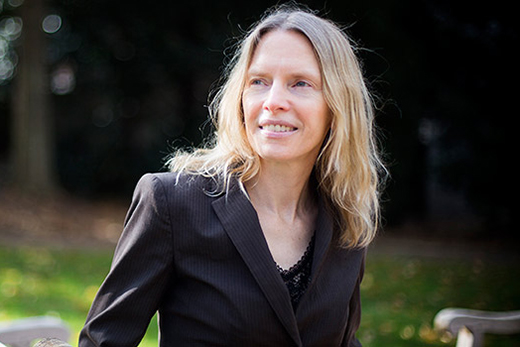Several years into working in neuroscience laboratories, Laura Otis had "a gut feeling" that she was in the wrong field. She held a BS in molecular biophysics and biochemistry and a master's in neuroscience, but she was missing literature and philosophy. So she changed course, leaving the lab and enrolling in a doctoral program in comparative literature at Cornell.
But Otis did not leave science behind. Now as a professor of English at Emory, she works at the intersection of scientific and literary studies with particular interests in 19th-century literature, memory and identity formation.
Further knitting her interdisciplinary interests together, she collaborates with faculty in other disciplines such as neurology and is a student herself in the low-residency MFA writing program at Warren Wilson College.
"My writing informs and improves the way I teach literature," says Otis, recipient of a MacArthur fellowship for creativity. "It helps me intricately understand the craftsmanship of how literature is made."
In her most recent book, "Rethinking Thought: Inside the Minds of Creative Scientists and Artists" (Oxford UP, November 2015), Otis explores how people learn by juxtaposing the perspectives of 34 creative thinkers with recent discoveries about visual mental imagery, verbal language and thought.
She interviewed a wide-ranging, creative slate of people for her study of individual thinking styles, including writers, scientists and painters, as well as a flamenco dancer and cartoonist. Among the verbal portraits are novelist and former Emory University Distinguished Professor Salman Rushdie, and former U.S. Poet Laureate Natasha Trethewey, Woodruff Professor of English and Creative Writing at Emory.
One finding that rose to the forefront of Otis' research: "People went into fields that were challenging for them," she says. "They transformed their thought from that effort."
Next up for her creative consideration, Otis is participating in a conference Feb. 11-12, titled "Foundations of Emotions," sponsored by the Emory Center for Mind, Brain, and Culture.
Her talk on the metaphors, politics and social responses surrounding what she calls "the unsavory emotions" (self-pity, spite, hate, and grudges) will overlap with a spring University Course she is teaching on Emotional Evidence.
As with other endeavors, Otis will bring an interdisciplinary perspective to the ways that researchers in different fields treat emotions in their efforts to construct knowledge.

